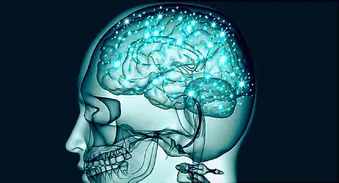How Your Brain Works: Myths and Facts


Question 1/12
What percentage of your brain do you use?
- 10%
- 50%
- 100%
Question 2/12
At what age does the brain usually stop developing?
- Teens
- 20s and 30s
- 50s
Question 3/12
Some people are right-brained (creative), and others are left-brained (logical).
- True
- False
Question 4/12
What color is your brain?
- Gray
- White
- Different colors
Question 5/12
What effect does listening to classical music have on babies?
- It raises IQ
- It boosts reaction times
- It doesn't have an effect
Question 6/12
What happens to the brain during sleep?
- It shuts down
- It rests
- It's busy
Question 7/12
How many new brain cells do adults grow per day?
- None
- 100 to 350
- About 700
Question 8/12
People learn better when they’re taught in their preferred learning style, like through pictures, words, sound, or touch.
- True
- False
Question 9/12
What happens in your brain when you learn new things?
- New brain cells grow
- New connections form
- New wrinkles appear
Question 10/12
What age is best to learn new information?
- Age 3 and under
- Ages 11 to 18
- Any age
Question 11/12
What percentage of your intelligence is set by your genes?
- 10%
- 50%
- 80%
Question 12/12
What effect does learning two languages at the same time have on your brain?
- You learn slower
- It helps protect you against dementia
- It doesn't have an effect
